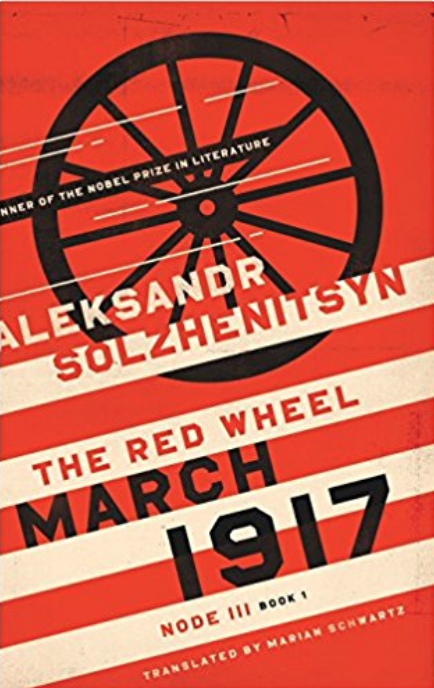March 1917: The Red Wheel, Node III, Book 1 was selected by the Association of University Presses for the 2018 Book, Jacket, and Journal Show. Jeff Miller, a designer with Faceout Studio, and Wendy McMillen, production and design manager of the University of Notre Dame Press, collaborated on the design. The design was one of 53 chosen from a total of 375 submissions. The show is held each year to celebrate the year's best work in design and production in university presses. The show will be exhibited across the U.S. from June 2018 to May 2019; the first show opens June 17th in San Francisco during the 2018 AUPresses Annual Meeting
Since 1965, the Association of University Presses has held the Book, Jacket, and Journal Show each year to highlight achievements in design and production in university presses. The winning books and journals for 2018, selected by jurors in New York City, will be displayed in the annual catalog and the traveling show, which premiers in San Francisco on June 17, and continues throughout North America until May 2019.




















